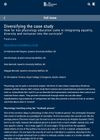 January 2025 in “Burns & Trauma”
January 2025 in “Burns & Trauma” Skin organoids help improve wound healing and tissue repair.
January 2025 in “European Journal of Pharmacology” Forsythoside A may help treat hair loss by blocking specific channels.
 December 2024 in “Livers”
December 2024 in “Livers” Recognizing rare causes of MASLD is crucial for effective treatment and preventing complications.

Nanoformulations improve luteolin's effectiveness as a cancer treatment.
 August 2024 in “Cell Death and Disease”
August 2024 in “Cell Death and Disease” Activating TLR9 helps heal wounds and regrow hair by using specific immune cells.
 August 2024 in “Drug Design Development and Therapy”
August 2024 in “Drug Design Development and Therapy” Decursin shows promise for treating cancer, neuroprotection, inflammation, and hair loss.
 July 2024 in “Journal of Investigative Dermatology”
July 2024 in “Journal of Investigative Dermatology” A single medium, PRIME AIRLIFT, supports better human hair follicle formation in grafts.
 June 2024 in “International Journal of Nanomedicine”
June 2024 in “International Journal of Nanomedicine” CRISPR/Cas9 has improved precision and control but still faces clinical challenges.
 June 2024 in “ESMO Gastrointestinal Oncology”
June 2024 in “ESMO Gastrointestinal Oncology” The combination treatment showed a higher response rate but no significant survival benefits.
 April 2024 in “The Journal of experimental medicine/The journal of experimental medicine”
April 2024 in “The Journal of experimental medicine/The journal of experimental medicine” Treg cells help repair and regenerate tissues by interacting with local cells.
Genetic analysis of rabbits identified key genes for traits like coat color, body size, and fertility.
 March 2024 in “BMC cancer”
March 2024 in “BMC cancer” High levels of ST14 and TMEFF1 proteins in ovarian cancer are linked to worse patient outcomes and may be a new treatment target.
 March 2024 in “Bioactive Materials”
March 2024 in “Bioactive Materials” New treatment using engineered nanovesicles in hydrogel improves hair growth by repairing hair follicle cells in a mouse model of hair loss.
January 2024 in “Diagnostics” Long COVID causes a wide range of long-lasting symptoms that change over time and are hard to diagnose and treat.
December 2023 in “Journal of clinical medicine” Some leukemia treatments can cause skin reactions similar to keratosis pilaris.
December 2023 in “International journal of molecular sciences” Chromosomal differences affect how muscle cells respond to testosterone.
 September 2021 in “Physiology News”
September 2021 in “Physiology News” Physiology education needs to include more diversity and different perspectives to better represent all populations.
December 2022 in “Molecular Pharmaceutics” Latanoprost-loaded nanotransfersomes could help treat hair loss by promoting hair growth.












